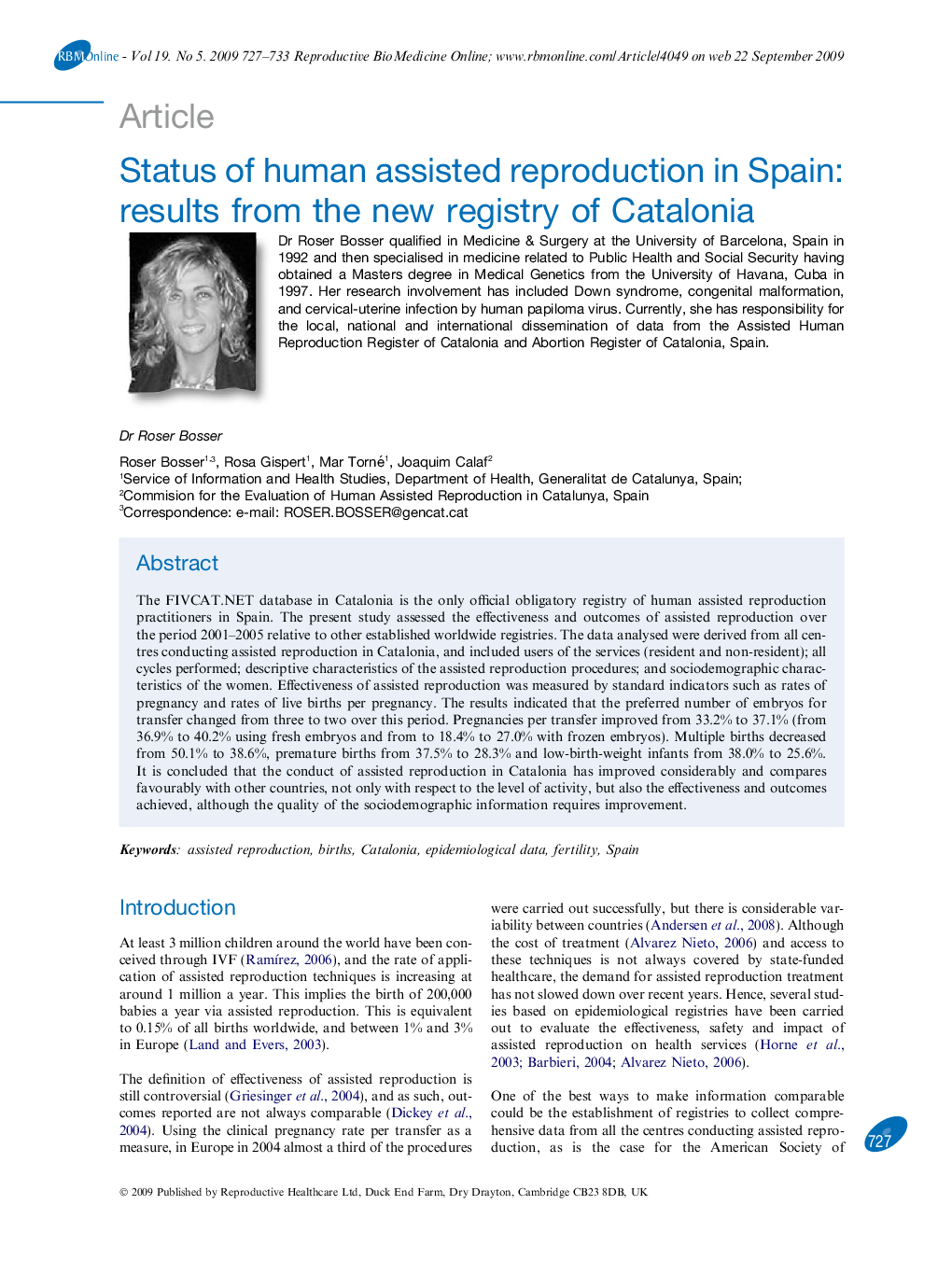| Article ID | Journal | Published Year | Pages | File Type |
|---|---|---|---|---|
| 3971979 | Reproductive BioMedicine Online | 2009 | 7 Pages |
The FIVCAT.NET database in Catalonia is the only official obligatory registry of human assisted reproduction practitioners in Spain. The present study assessed the effectiveness and outcomes of assisted reproduction over the period 2001–2005 relative to other established worldwide registries. The data analysed were derived from all centres conducting assisted reproduction in Catalonia, and included users of the services (resident and non-resident); all cycles performed; descriptive characteristics of the assisted reproduction procedures; and sociodemographic characteristics of the women. Effectiveness of assisted reproduction was measured by standard indicators such as rates of pregnancy and rates of live births per pregnancy. The results indicated that the preferred number of embryos for transfer changed from three to two over this period. Pregnancies per transfer improved from 33.2% to 37.1% (from 36.9% to 40.2% using fresh embryos and from to 18.4% to 27.0% with frozen embryos). Multiple births decreased from 50.1% to 38.6%, premature births from 37.5% to 28.3% and low-birth-weight infants from 38.0% to 25.6%. It is concluded that the conduct of assisted reproduction in Catalonia has improved considerably and compares favourably with other countries, not only with respect to the level of activity, but also the effectiveness and outcomes achieved, although the quality of the sociodemographic information requires improvement.
